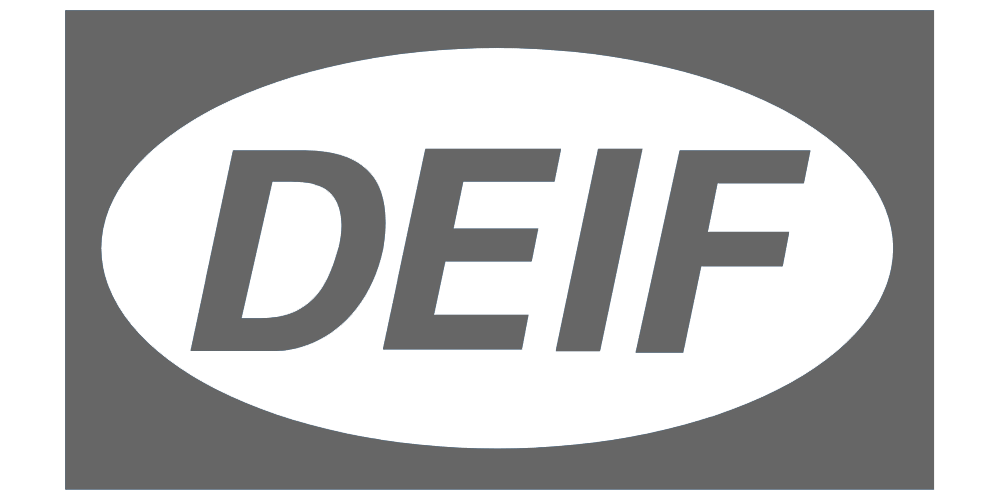The Danish Electro Instrument Factory (DEIF) stands at the forefront of sustainable energy solutions, offering innovative control systems for decentralised power production, marine and offshore applications, and renewable energy systems. With a global presence spanning over 50 markets and a workforce of 550+ employees, DEIF has transformed from its humble beginnings into a powerhouse of sustainable energy management.
Project overview
Our partnership with DEIF has been a transformative journey, marked by a shared commitment to reduce greenhouse gas (GHG) emissions and advance climate leadership. Together, we navigated a comprehensive process, starting with an in-depth GHG review, followed by the development of three robust GHG inventories. With each iteration, the client took greater ownership of the process, refining their approach and improving the quality of the inventories over time, allowing us to focus on more profound improvements.
Building on this solid foundation, we jointly created a high-level decarbonisation plan, charting a strategic path to emissions reductions. The culmination of our efforts was DEIF’s successful submission to the Science Based Targets initiative (SBTi) for both near-term and net-zero targets. This case study illustrates the systematic approach we adopted to drive meaningful progress and create lasting impact.
Our approach
Our long-term collaboration with DEIF allowed us to take a phased approach, with each project building on the previous one to ensure continuous improvement, impactful outcomes, and alignment with global sustainability standards. Leveraging our expertise and comprehensive service offerings, we addressed DEIF’s specific needs and goals at every stage of the process. To support DEIF’s ambitious sustainability objectives, we developed the following interlinked project streams:
- GHG review
- Three GHG inventories
- High-level decarbonisation plan
- SBTi submission
We completed three GHG inventories covering Scope 1, 2, and 3 emissions with progressively improved data quality.
GHG review
We began by conducting a detailed review of the DEIF’s existing GHG inventory, ensuring compliance with SBTi requirements. This process identified key opportunities to transition from spend-based to activity-based or supplier-specific accounting methods. This foundational step improved data accuracy and laid the groundwork for effective emission reduction strategies.
Three GHG inventories
Building on the review, we quantified the company’s greenhouse gas emissions across Scope 1, 2, and 3 for three consecutive years. Each inventory provided comprehensive insights that guided their decarbonisation efforts. The DEIF team gradually took greater ownership of the process, improving the quality of data collection and alignment with EU reporting requirements year after year.
We engaged with key stakeholders from C-suite to department level, ensuring ownership of the decarbonisation process.
High-level decarbonisation plan
Using insights gained from DEIF’s GHG baseline, we developed a tailored climate transition plan that set out a clear, actionable roadmap toward the their climate targets. This included a high-level decarbonisation roadmap outlining emission reduction potential, key levers, timelines, and required investments. Stakeholder engagement was integral to this process, ensuring the client’s team was empowered to lead the decarbonisation journey.
SBTi near-term & net-zero target setting and submission
To align with global standards, we collaborated with DEIF to set ambitious, science-based emissions reduction targets. We supported the client throughout the SBTi submission process, offering customised guidance, addressing review questions, and ensuring a seamless experience. With our guidance and our track record of 100% success rate in obtaining SBTi approval, DEIF achieved validation of their targets, cementing their position as a leader in climate action.
This phased, collaborative approach—integrating our specialised services—enabled DEIF to make measurable progress, align with international standards, and foster lasting change in their decarbonisation journey. None of this would have been possible without the commitment of the stakeholders within the company, particularly the dedication and leadership of their Sustainability Manager, Anna Pattis, who played a pivotal role in driving these efforts forward.
Result
Together, we achieved SBTi validation for DEIF’s near-term and net-zero targets.
Through this journey, DEIF achieved a comprehensive understanding of their greenhouse gas emissions, with accurate and reliable GHG inventories for three consecutive years. The high-level decarbonisation plan provided a clear and actionable roadmap, empowering the organisation to take decisive steps toward achieving their climate targets. Their successful SBTi submission validated their ambitious emissions reduction goals, positioning them as a sustainability leader in their industry. Most importantly, these projects laid the groundwork for lasting organisational change, driven by engaged stakeholders and the visionary leadership.
Key achievements
- Successfully developed three comprehensive GHG inventories, covering Scope 1, 2, and 3 emissions, with progressively enhanced data quality.
- Identified 17 decarbonisation levers, providing a detailed evaluation of emission reduction opportunities across operations.
- Identified and prioritised 5 high-impact decarbonisation initiatives for immediate implementation, driving measurable progress toward climate targets.
- Achieved full alignment with Science Based Targets initiative (SBTi) requirements for both near-term and net-zero goals.
- Engaged and empowered stakeholders at all levels—from C-suite executives to departmental teams—ensuring strong ownership and commitment to the decarbonisation journey.
The support was a cornerstone to establishing a more detailed understanding of DEIF's climate impact and overall levers to decarbonisation. The collaboration was and remains fruitful and competent.

